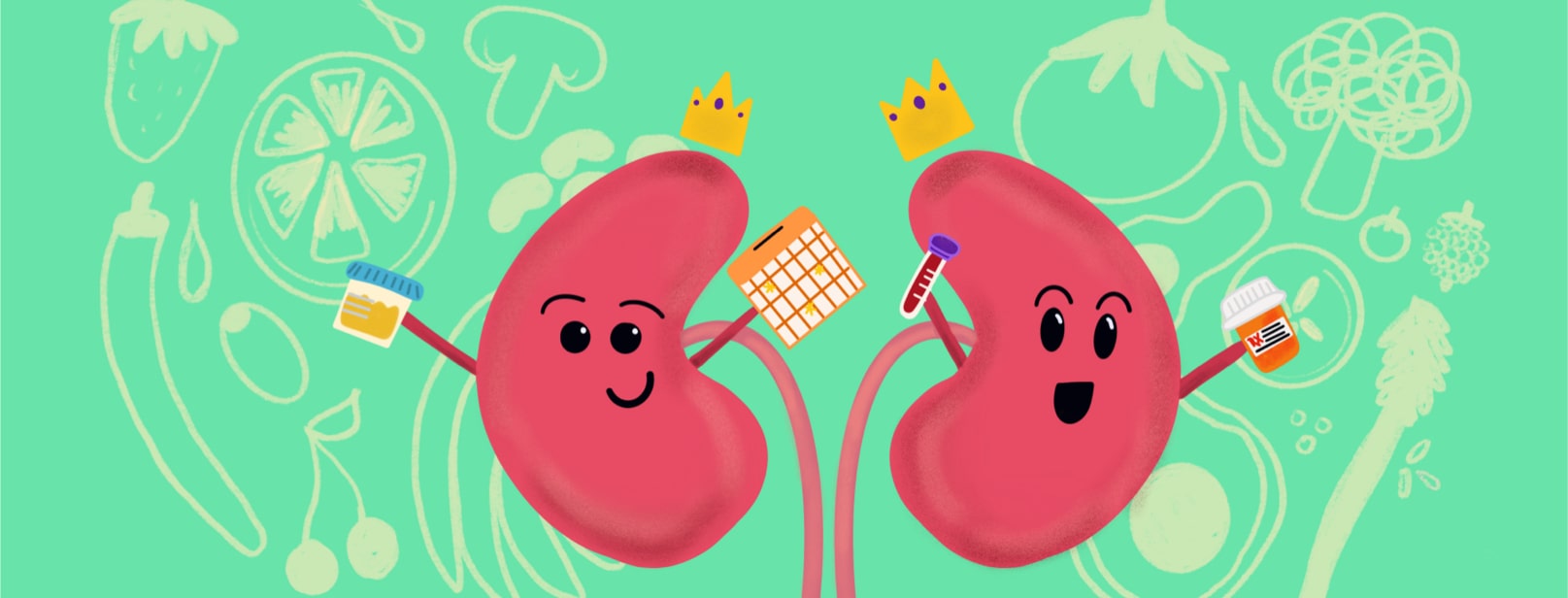Caring for Your Kidneys When You Have Diabetes
Editor’s Note: This article was written by Megan Munoz and originally appeared on our partner site Type2Diabetes.com.
Each year, the American Diabetes Association (ADA) releases updated guidelines for diabetes care. Those guidelines are based on the latest research and help your healthcare team best care for you. Based on the 2022 guidelines, here is what you should know about caring for your kidneys when you have type 2 diabetes.1
Monitor your kidney health regularly
With diabetes, 2 main diagnostic tests are used to tell your doctor how well your kidneys are working.
Urine albumin test
The first test is called a urine albumin test. The urine albumin test checks the levels of protein in your urine. Higher levels of protein found in your urine are considered abnormal and a cause for concern.1
Estimated glomerular filtration rate
The second test is called an eGFR. The eGFR (often called just GFR) is a blood test done as part of a group of labs called a basic metabolic panel. Your eGFR score estimates how well your kidneys filter waste products out of your body.2
A urine albumin test and eGFR should be performed at least every year. If your levels are in concerning ranges, you should have these tests done at least twice a year.1
Know your options to keep your kidneys healthy
Blood sugar and blood pressure control
When you have diabetes, protecting your kidneys starts with healthy blood sugar and blood pressure levels. Having stable, healthy levels can slow kidney damage or lower the chance of it happening in the first place.3
Your doctor will work with you to help keep your blood sugar and blood pressure at safe levels. If you're struggling with your blood sugar levels, a Certified Diabetes Care and Education Specialist (CDCES) may be able to help.
Proper nutrition
Eating patterns are also important for keeping your kidneys healthy. If you have severe kidney disease (but you're not on dialysis), avoiding high levels of protein is necessary.1
Registered dietitians are a great resource to help you understand how much protein is safe for you. They're also great at helping you learn how to eat well for all your health conditions, which is often overwhelming for many people.
Featured Forum
View all responsesMedicines
Medicines can help protect your kidneys as well. For example, if you have kidney disease, using an SGLT-2 inhibitor drug can help slow kidney damage and protect against heart disease. SGLT-2 inhibitors are a group of diabetes medicines that help your body urinate sugar out of your body.1,2
In the United States, there are several approved SGLT-2 inhibitors1
Taking certain medicines is not recommended if you don't have kidney disease and your blood pressure is healthy.
Consult with a nephrologist
A doctor who specializes in treating the kidneys is called a nephrologist. You should see a kidney specialist if your eGFR is less than 30 or you have high protein levels in your urine. It's also essential to work with a nephrologist if your kidney health is getting worse faster than your doctor expected or your doctor isn't sure why you're having kidney problems.2
Care for your kidneys
If your kidney health doesn't seem to be getting better after trying different treatment options, ask for a referral to a nephrologist. Make sure your kidney labs are done every year, look at the results, and ask your doctor to review them with you. These steps are important for staying on top of your kidney health.
Quick Quiz
How many cases of CKD in the US are caused by diabetes or high blood pressure?

Join the conversation